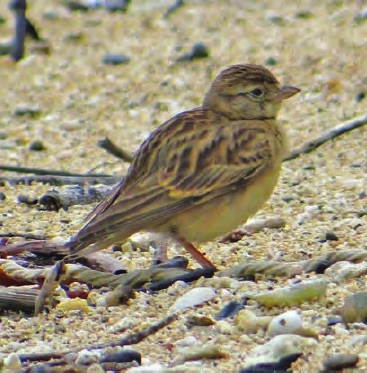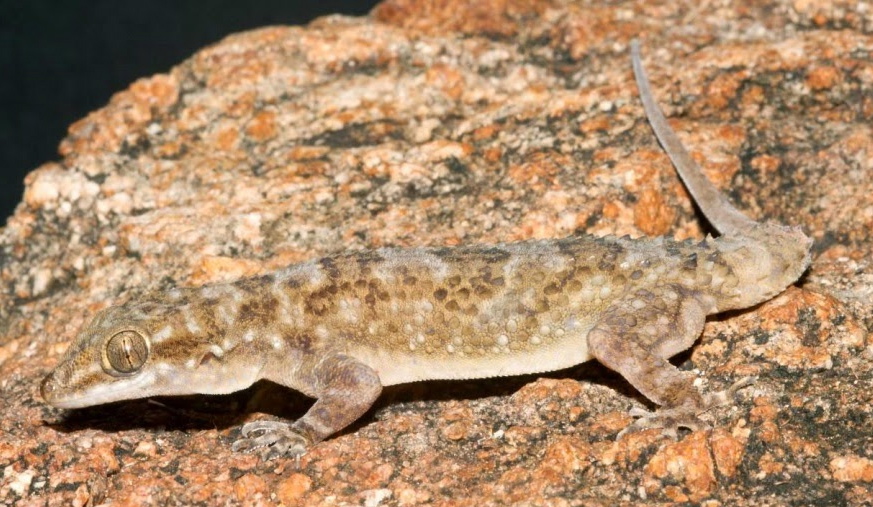The Greater short-toed lark has fine streaks on its forehead, a pale pinkish cylindrical beak, white underparts and a small dark neck patch. From old records of bird sighting in Myanmar, the discoverers speculated that it might have arrived in the Andamans via southern Myanmar. Birdwatchers in Myanmar and the northern islands within Indian territories might encounter this species, especially during winter, they say.

Greater short-toed lark (Photo: S Rajesh Kumar)
Herpetologists Zeeshan Mirza and Rajesh Sanap of the National Centre for Biological Sciences in Bengaluru discovered two new species of lizards in the past year. One is a warty, rock-dwelling gecko they found on boulders, caves and forts of the Western Ghats. The other is a nocturnal leopard gecko found in the Satpura range in central India. Leopard geckos, so called because of the spotted skin, are a major part of reptile pet trade but remain poorly studied in their natural habitat. The new discovery helps fill a gap in lizard distribution between the eastern and western parts of the country

Hemidactylus acanthopholis (Photo: Mirza and Sanap)

Eublepharis satpuraensis (Photo: Mirza and Sanap)
What’s been markedly different in the discoveries of the past year is the large number of fish and frogs that have emerged. Twenty four species of frogs were found, including 14 kinds of dancing frogs in the Western Ghats. Twenty three species of fish have been discovered from across Kerala, Tamil Nadu, Manipur, Mizoram and Arunachal Pradesh.
The new animal discoveries are not restricted to forests and national parks. Mumbai and Bengaluru were the sites of many new findings, most of them being insects. A new kind of parasitic was discovered in Mumbai, brown-black in colour with yellow and brown legs.

Parapanteles athamasae

Neocladia mira










